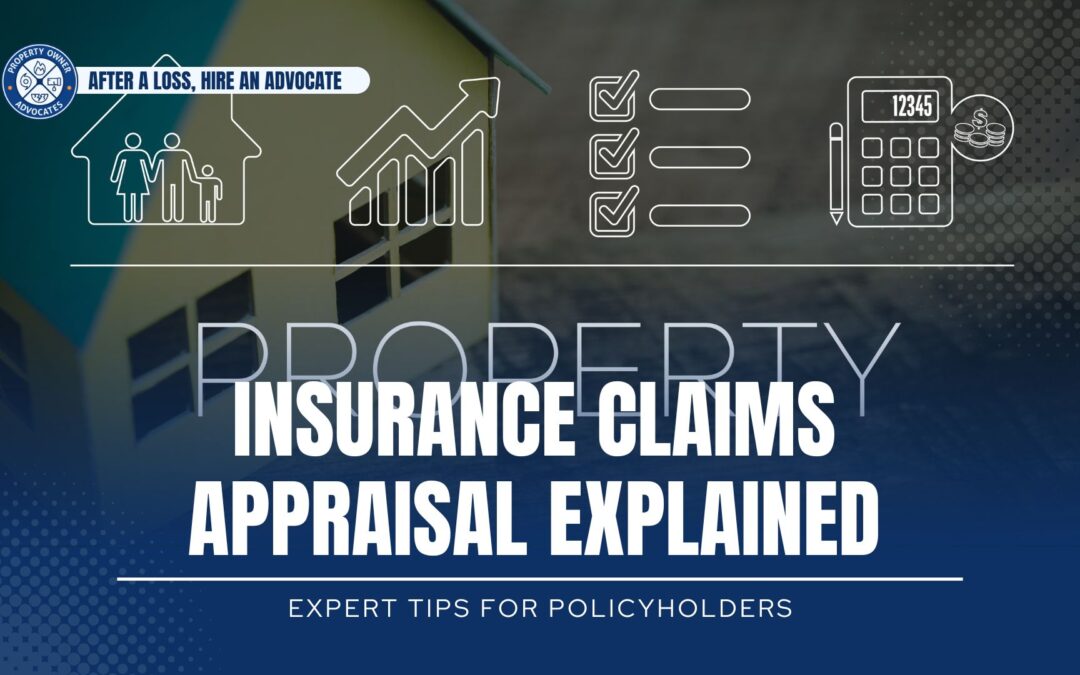When the insurer and policyholder can’t agree on the value of damage, this clause can make all the difference.
Understanding the Appraisal Clause
Most property insurance contracts contain a provision known as the appraisal clause. This clause outlines a formal procedure for resolving disputes about how much a loss is worth — not whether it’s covered.
In plain terms, it’s a built-in form of alternative dispute resolution (ADR) that lets both sides obtain an independent evaluation of the loss without immediately heading to court.
The process follows a fairly consistent structure:
- Either party—the insurer or the policyholder—may demand appraisal once a disagreement over valuation arises.
- Each side selects an appraiser with relevant experience in estimating property damage.
- The two appraisers independently assess the loss and attempt to reach an agreement.
- If they can’t, they jointly select a neutral umpire who reviews both assessments and decides which figure (or a compromise) will become the final award.
- Once at least two of the three sign the award, it typically fixes the amount of loss under the policy.
This mechanism provides a contractual path to resolution that can be quicker and less adversarial than a full lawsuit.
Why Appraisal Exists
After storms, fires, or other major losses, disagreements frequently emerge between a property owner’s estimate and the insurer’s assessment.
While negotiation can solve many disputes, some reach a standstill. The appraisal clause gives both parties a way to move forward without litigation.
Appraisal aims to establish fair value through expert input rather than legal argument. It’s intended to save time and costs while keeping the discussion focused strictly on dollar amounts, not on whether coverage applies.
Evolving Legal Landscape
Although the basic concept is uniform, state laws and court decisions have shaped the details in different ways:
- Some courts have ruled that once a party invokes appraisal, it cannot simply withdraw, even if delays occur.
- Others have emphasized that an award may be invalid if one appraiser refuses to participate or if procedural requirements—such as how the umpire is chosen—aren’t followed.
- In several jurisdictions, courts treat appraisal similarly to arbitration, applying comparable standards for enforcement and review.
- Certain regulators, including New York’s insurance department, expressly recognize that appraisal awards are binding regarding the amount of loss.
Because wording varies from policy to policy, it’s important to read the specific clause and understand the governing law in your state before moving forward.
Common Challenges and Misunderstandings
While the appraisal process is designed to streamline disputes, in practice it can raise its own issues.
Professionals who handle property claims often highlight the following concerns:
- Appraisal Comes With Questions Of Neutrality
Each party hires its own appraiser, so independence and credibility matter. If an appraiser appears biased, it can undermine confidence in the result. - Appraisals Can Have Timing Errors
Appraisal should occur only after both sides have met their obligations—such as submitting proofs of loss or allowing inspections. Triggering it too early may render the process invalid. - Appraisals May Have A Narrow Scope
Appraisal determines value, not coverage. Attempting to use it to decide whether damage is covered can complicate or even void the process. - Appraisals Have Other Costs
Each party pays its own appraiser, and they split the umpire’s fee. Although it’s generally less expensive than court, costs can still add up. - Appraisals are (usually) Final
Once an award is signed by any two of the panel members, it’s usually binding. There’s limited opportunity to challenge the result later.
For these reasons, parties should enter appraisal only after careful consideration of the financial and strategic implications.
Best Practices for Property Owners
When used thoughtfully, appraisal can be a powerful way for policyholders to secure a fair value for their claim.
Below are practical steps to prepare for success:
- Examine your policy language to confirm when and how appraisal can be requested.
- Complete all pre-conditions—submitting documentation, allowing inspections, and responding to insurer inquiries.
- Select a qualified, impartial appraiser. Look for someone with technical estimating expertise, not a person compensated based on the outcome.
- Gather detailed support such as photographs, contractor bids, and expert reports to strengthen your valuation.
- Participate in choosing the umpire and ensure they have a reputation for neutrality.
- Weigh the economics. Appraisal fees may exceed the difference in dispute if the gap is small.
- Prepare for closure. Because the award is typically final, make sure your evidence is comprehensive before proceeding.
In essence, appraisal works best when coverage is clear but valuation is contested, and negotiation has stalled.
Considerations for Insurers
Insurers benefit from appraisal when they apply it transparently and in good faith.
Key considerations include:
- Following the contract exactly—appointing appraisers on time, documenting all communications, and participating fully in umpire selection.
- Maintaining neutrality—choosing representatives who can act independently to avoid accusations of bias.
- Avoiding misuse—resisting the temptation to invoke appraisal simply to delay payment or discourage policyholders.
- Documenting cooperation—a well-kept record demonstrates fairness if the award is later challenged.
Handled properly, appraisal can reinforce confidence in the insurer’s claims process while controlling litigation exposure.
Emerging Trends
Recent developments show how the appraisal landscape continues to shift:
- Some courts are expanding the scope of issues that can be decided through appraisal, including limited questions of causation.
- Bad-faith allegations are rising where parties appear to manipulate or delay the process.
- Policy wording differs widely across carriers, creating uncertainty and inconsistent outcomes.
- Regulators and industry groups are discussing standard language to ensure clarity and fairness nationwide.
These trends highlight the importance of staying informed and seeking experienced guidance before entering the process.
Key Takeaways
The appraisal clause serves as a built-in pressure release within insurance contracts.
When a dispute over the value of damage can’t be resolved through negotiation, it provides a structured alternative that may save time and cost.
Benefits:
- Faster resolution than court.
- Expert-driven assessment of value.
- Potentially lower legal expense.
Drawbacks:
- Binding outcome limits future options.
- Costs can still be significant.
- Neutrality and procedure are critical to fairness.
Used wisely, appraisal can help both sides reach closure without escalating to litigation. Used carelessly, it can compound frustration and cost.
How Property Owner Advocates Can Help With Insurance Claim Appraisals
When the value of your property loss is in question, having the right appraisal representative can be the difference between recovery and regret.
Our team specializes in insurance appraisals and claim valuation—helping property owners establish accurate, defensible numbers that stand up under scrutiny.
Here’s how we support you:
- Independent expertise: We represent your interests with full transparency and documented methodology.
- Experience that matters: Our appraisers understand how insurers evaluate damage, which means we know how to counter lowball estimates with credible evidence.
- Strategic process management: From invoking appraisal to coordinating umpire selection, we guide you every step of the way.
- Detailed documentation: You receive a comprehensive appraisal package—supporting estimates, photographs, and reports—built to hold up in negotiation or litigation if needed.
- Proven results: We’ve helped policyholders recover fair value after wind, water, fire, and structural losses across multiple markets.
If your insurance company’s offer doesn’t reflect the true cost to repair or replace your property, don’t navigate the process alone.
Let our certified appraisal team advocate for your claim and secure the value you’re entitled to.
Schedule a consultation today to discuss your claim and learn whether invoking appraisal is right for your situation.
We’ll review your policy, analyze your estimate, and map the best path forward—so you can focus on recovery while we handle the details.

